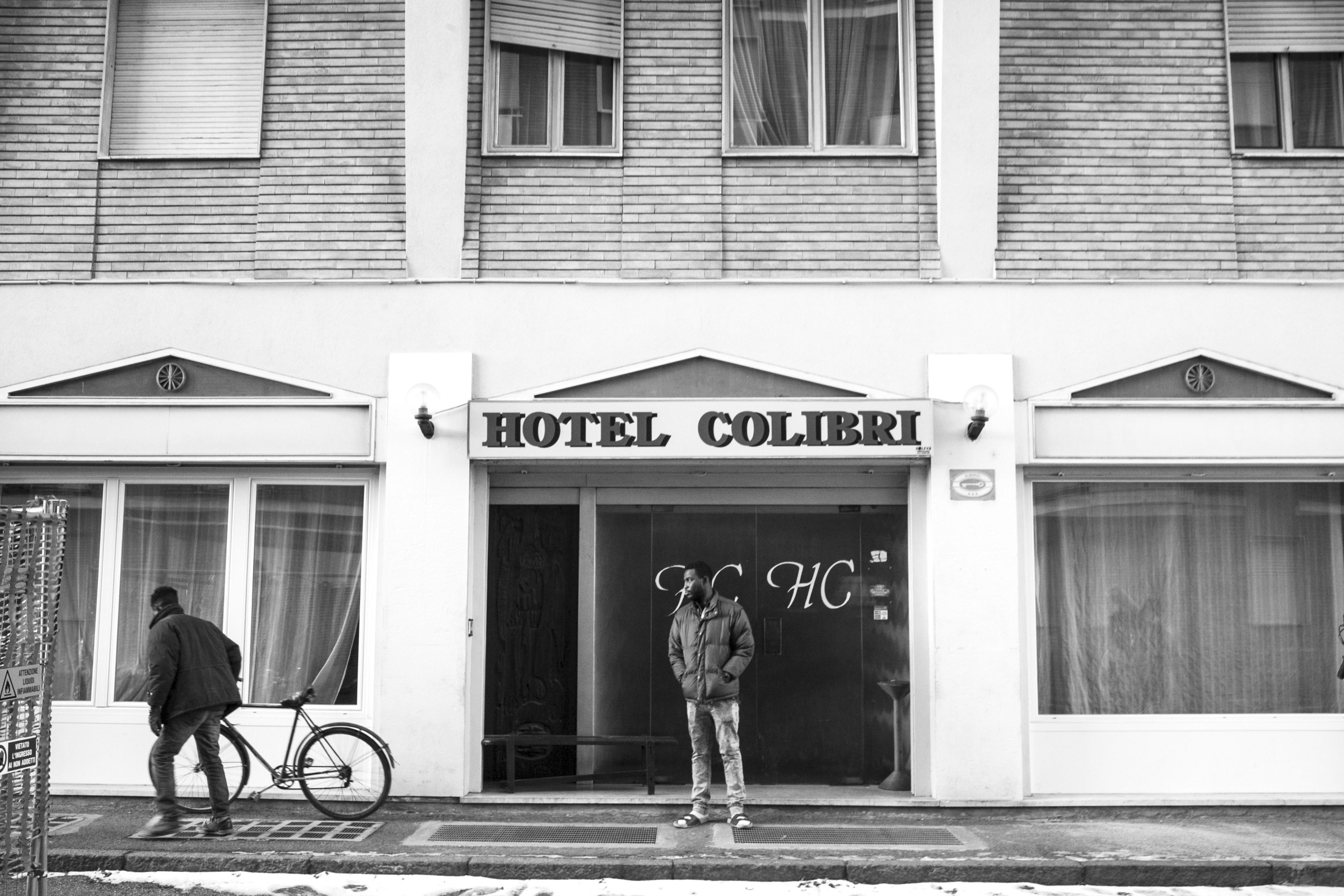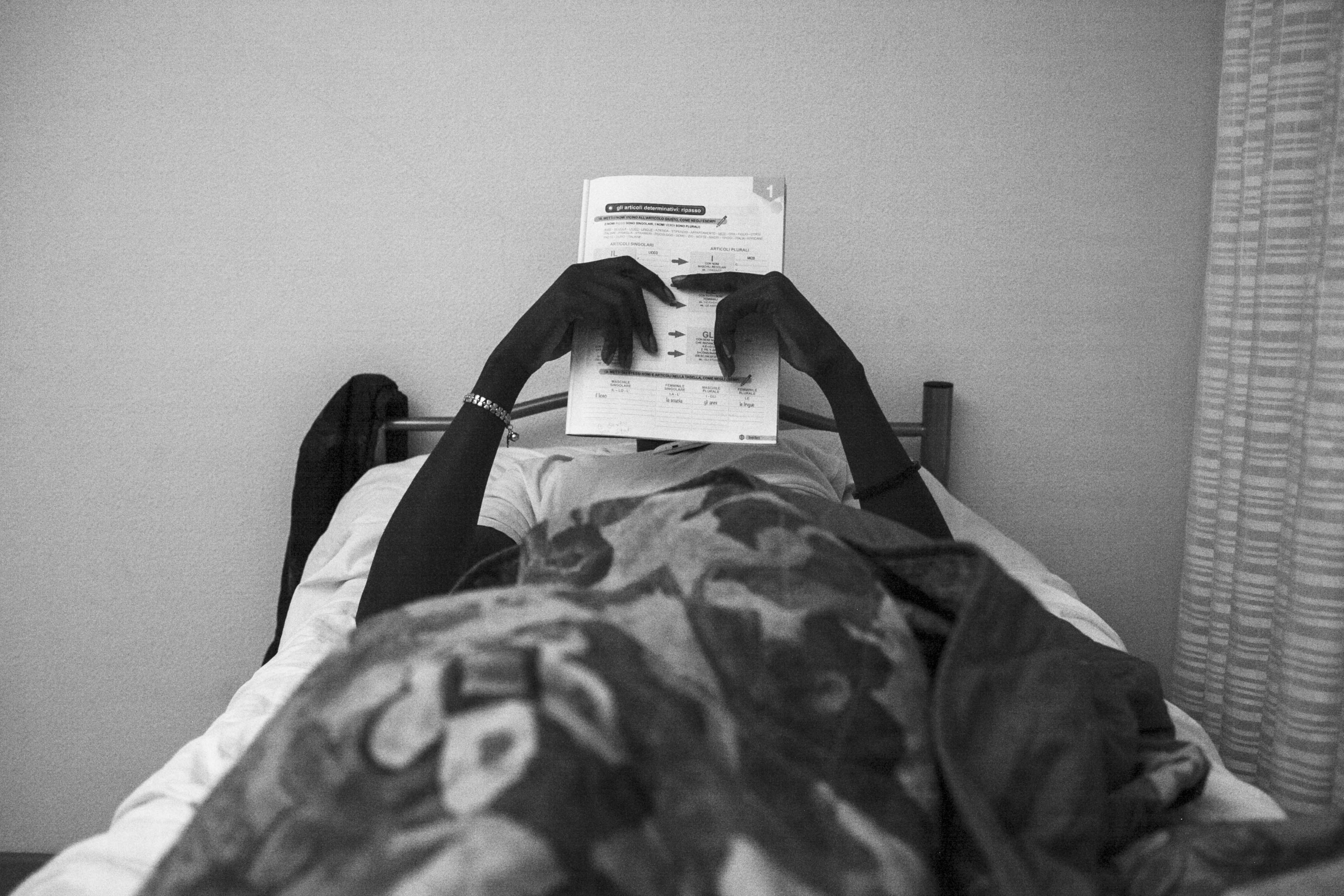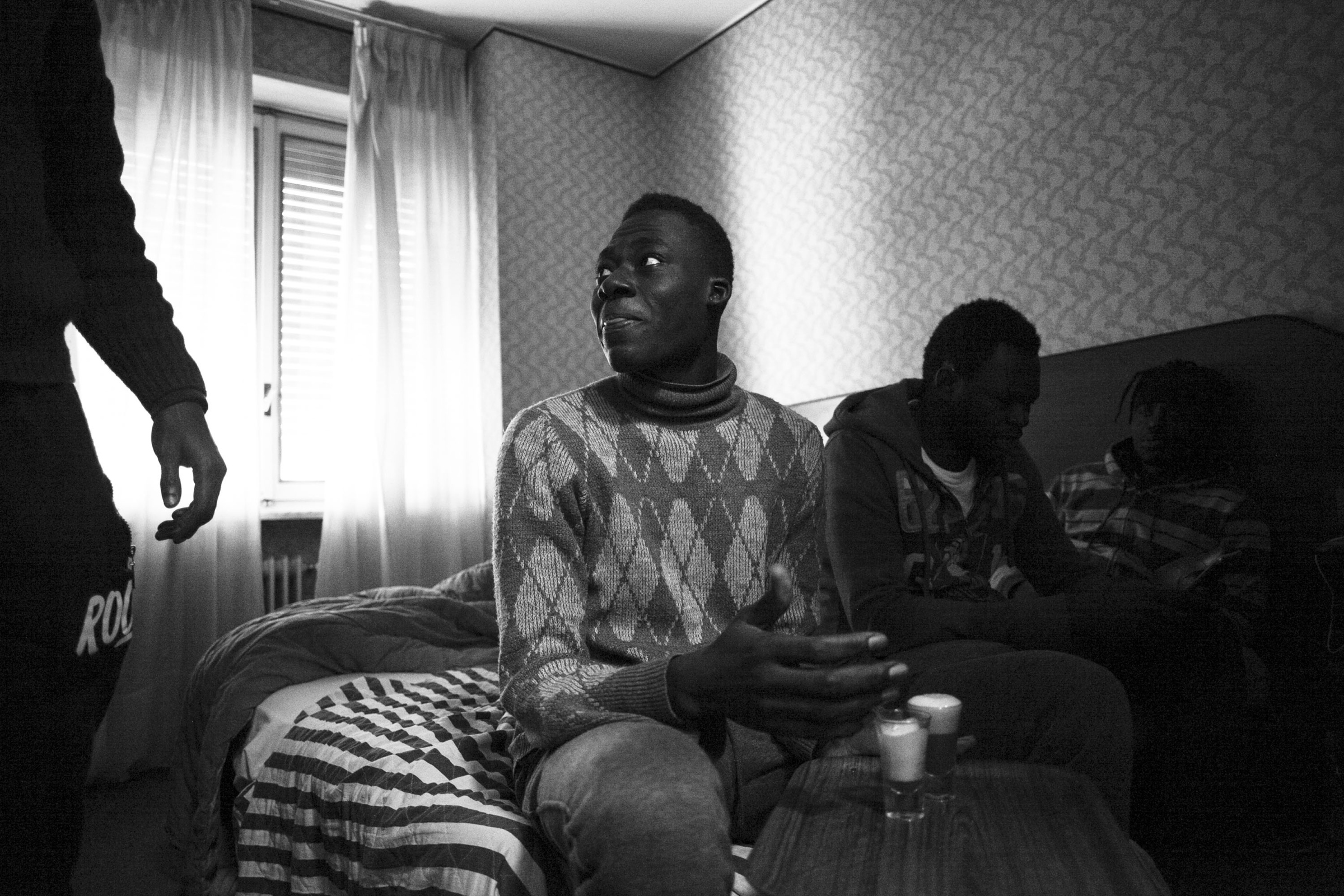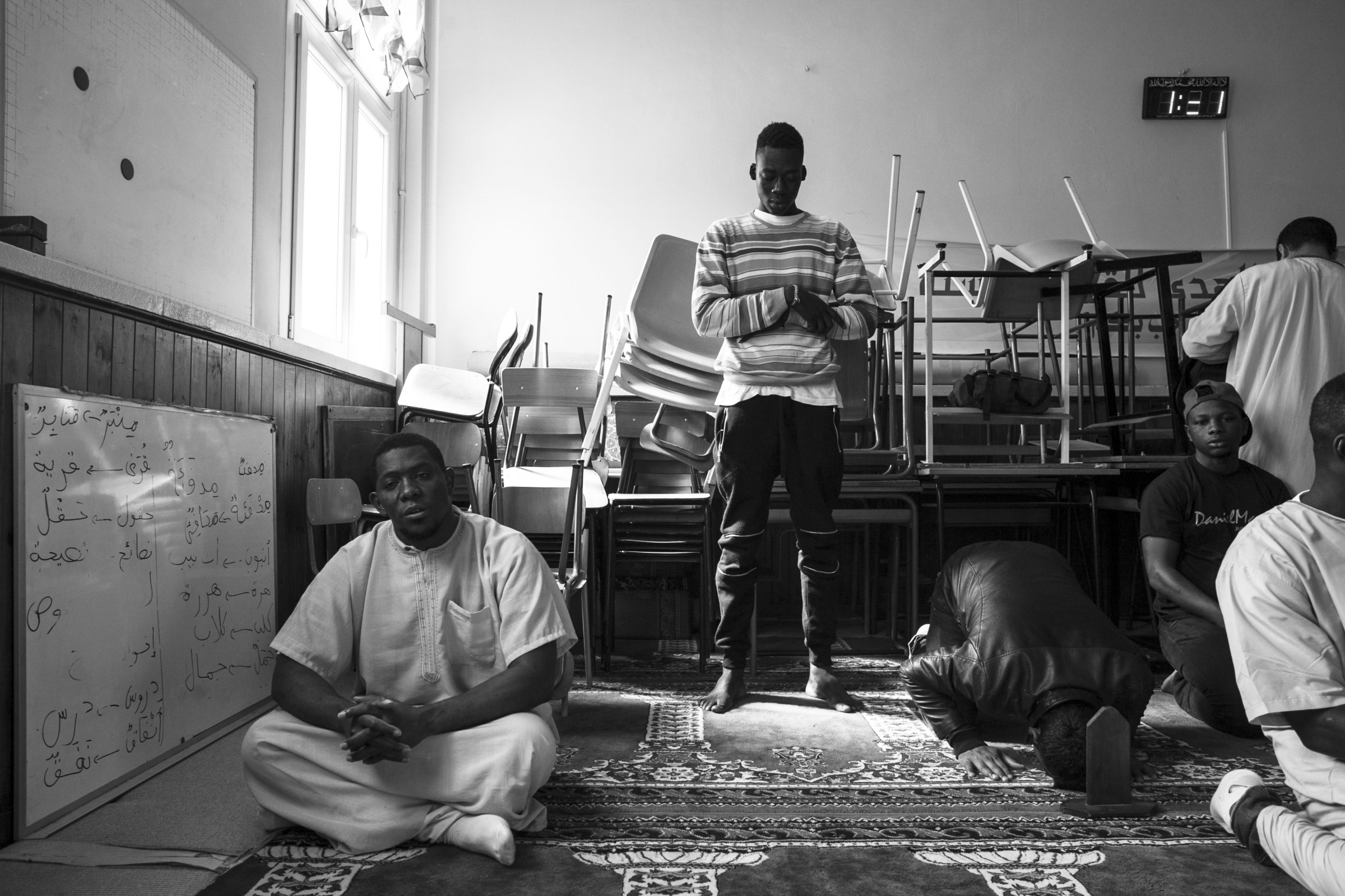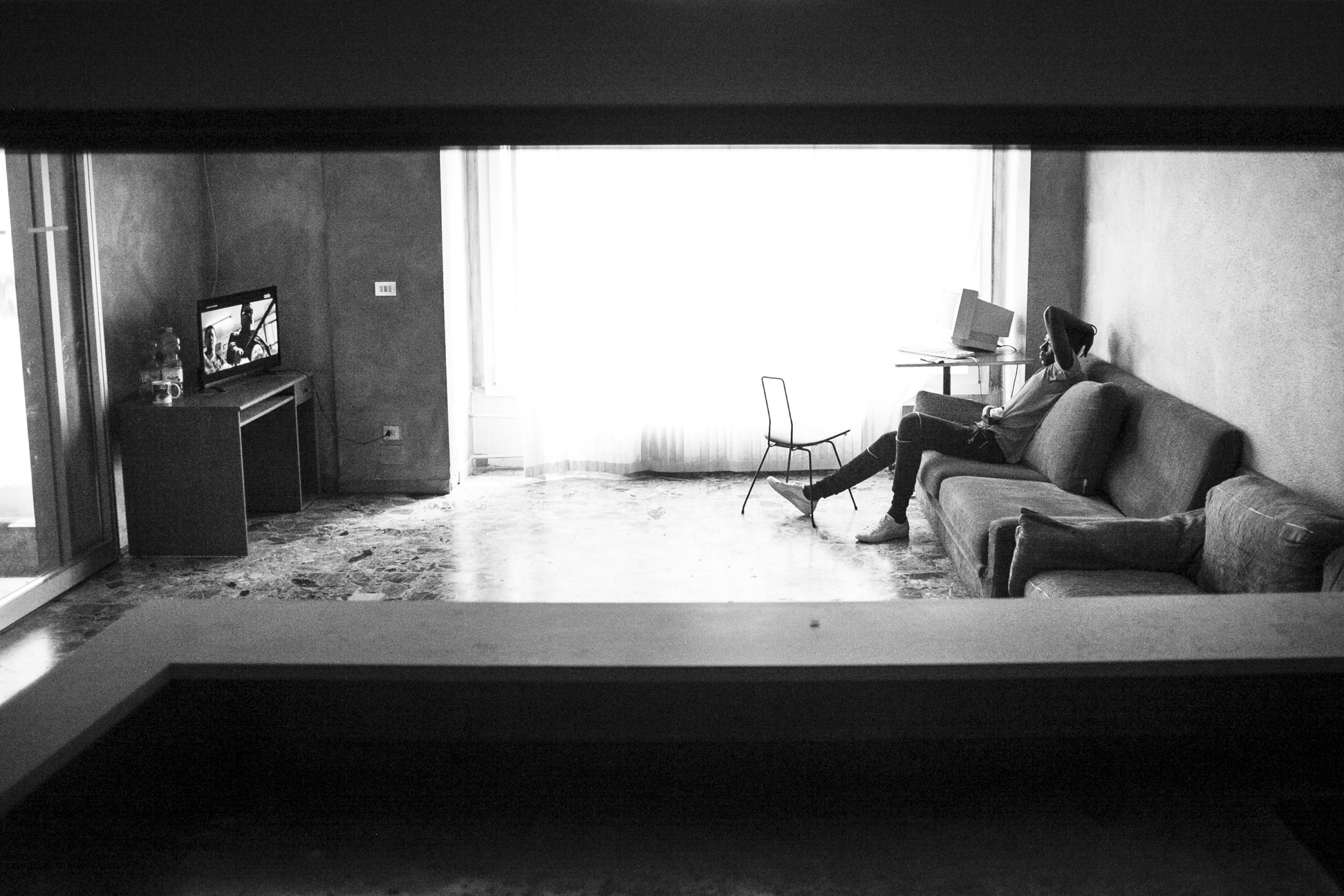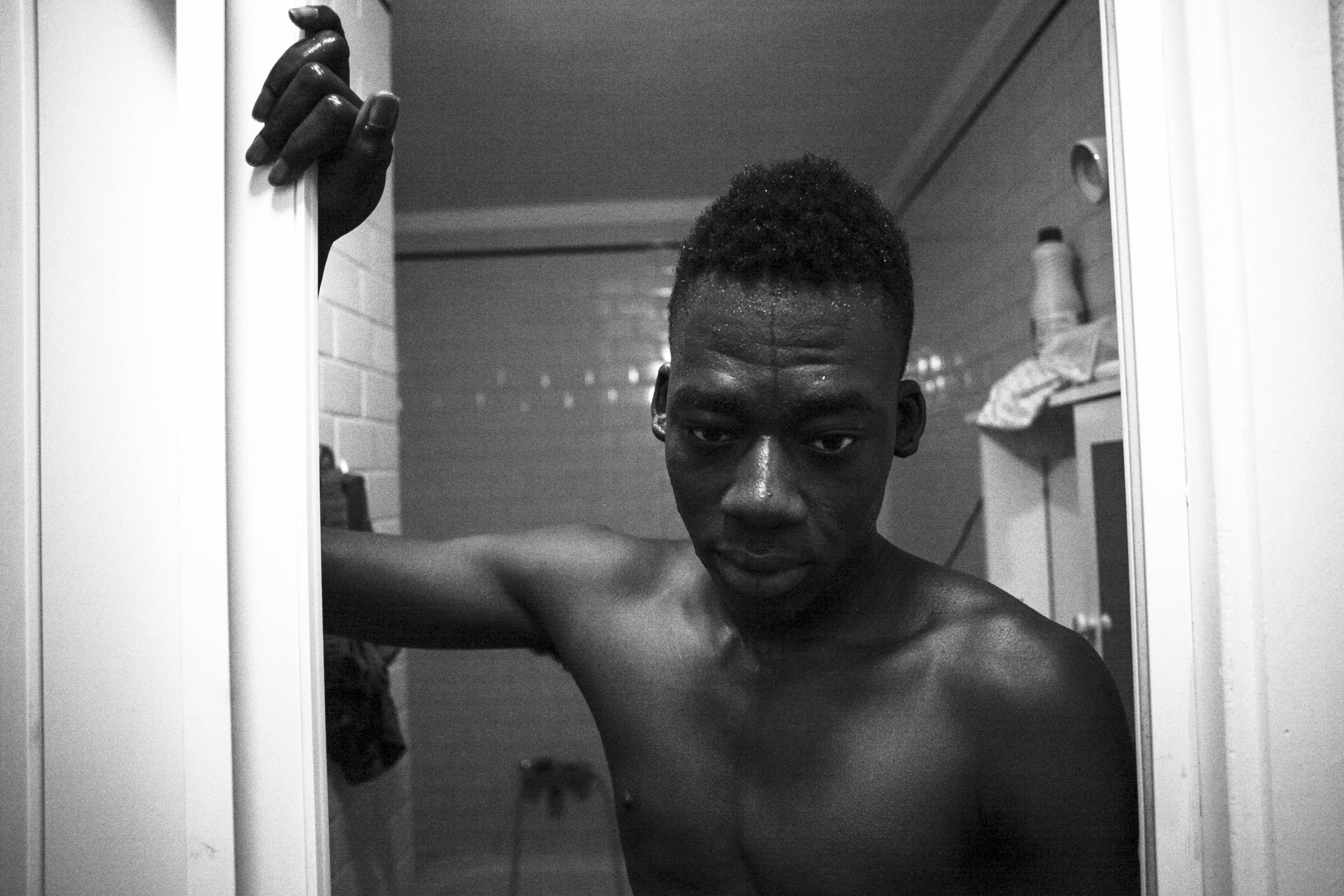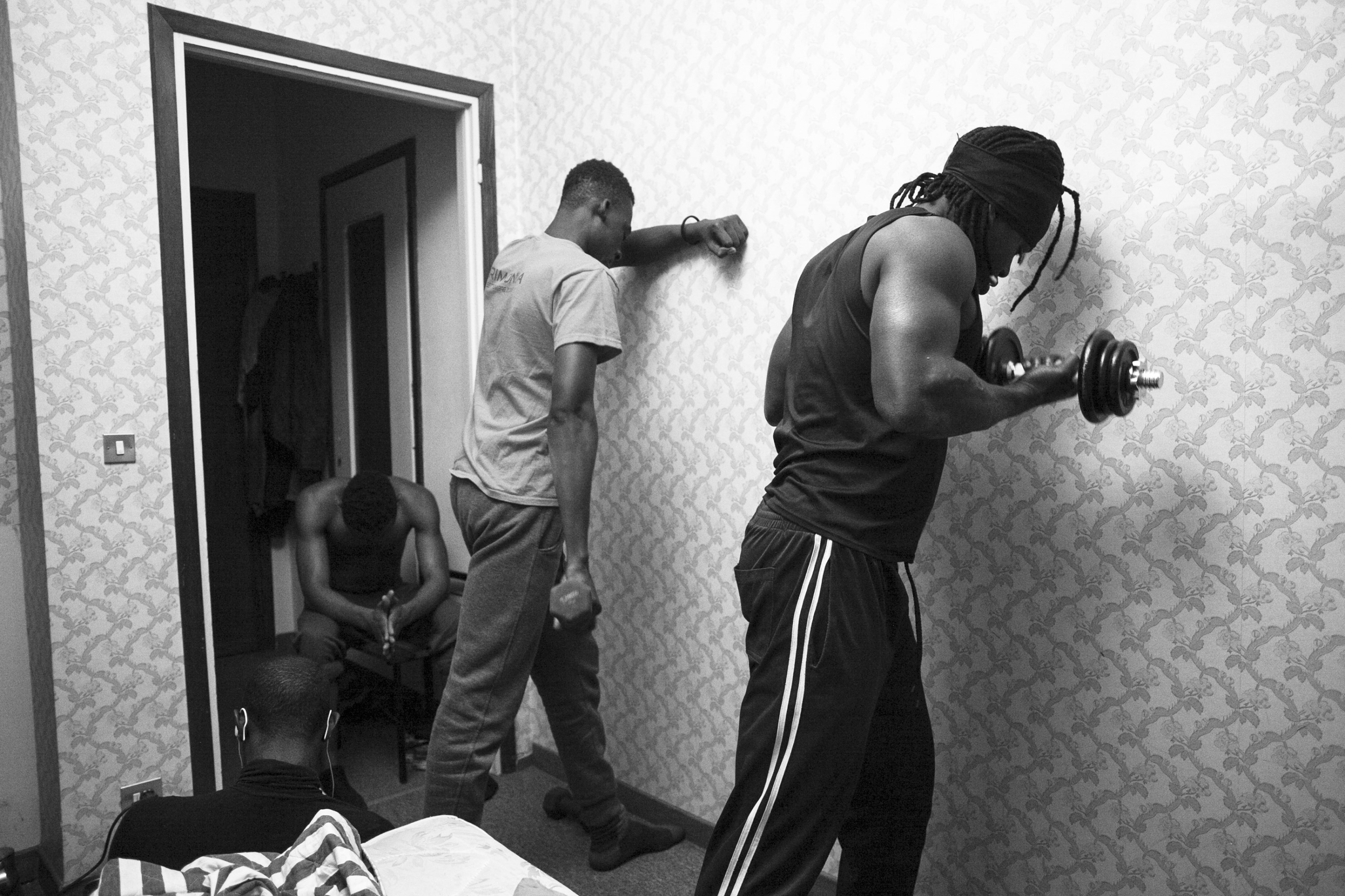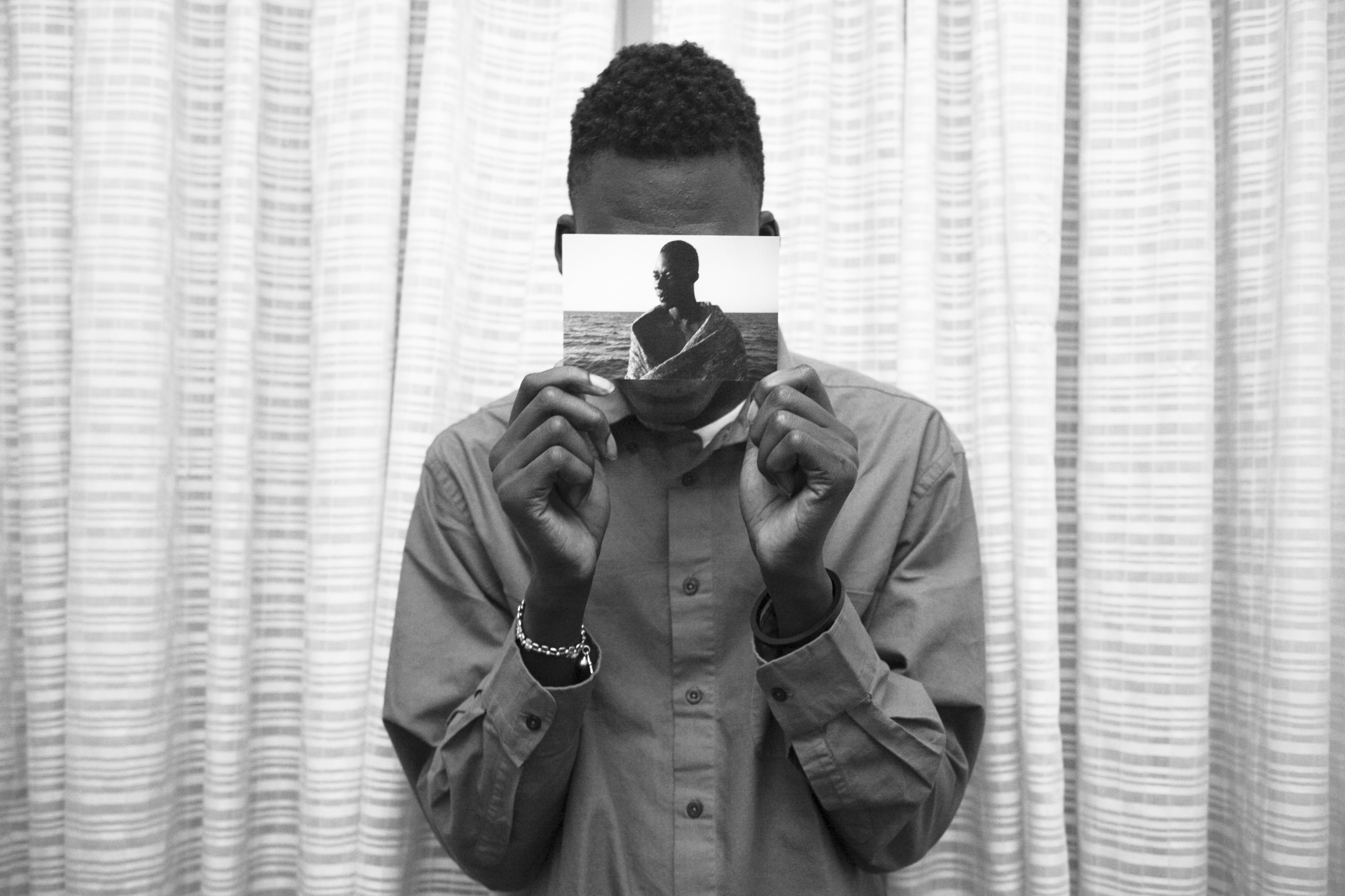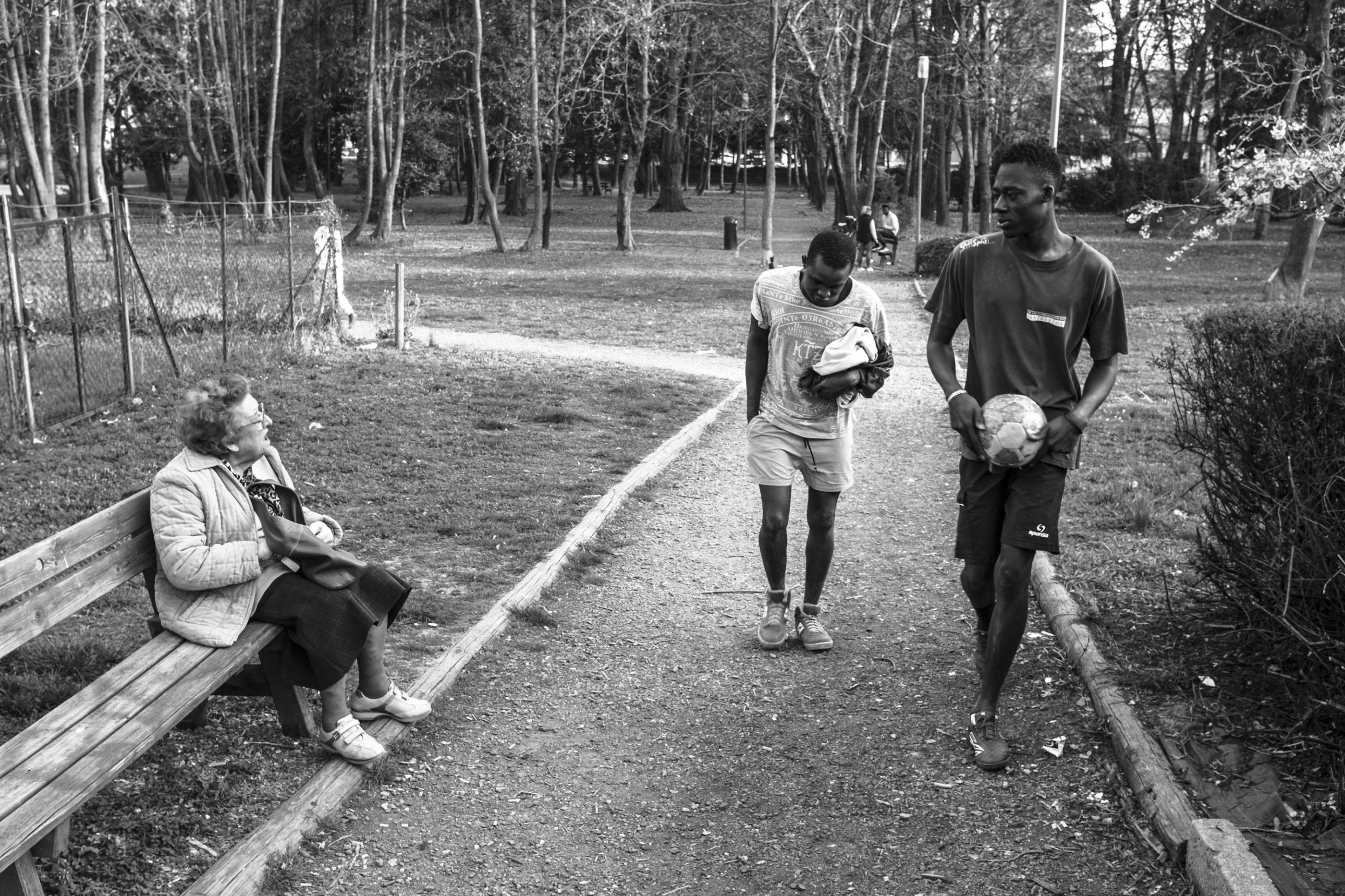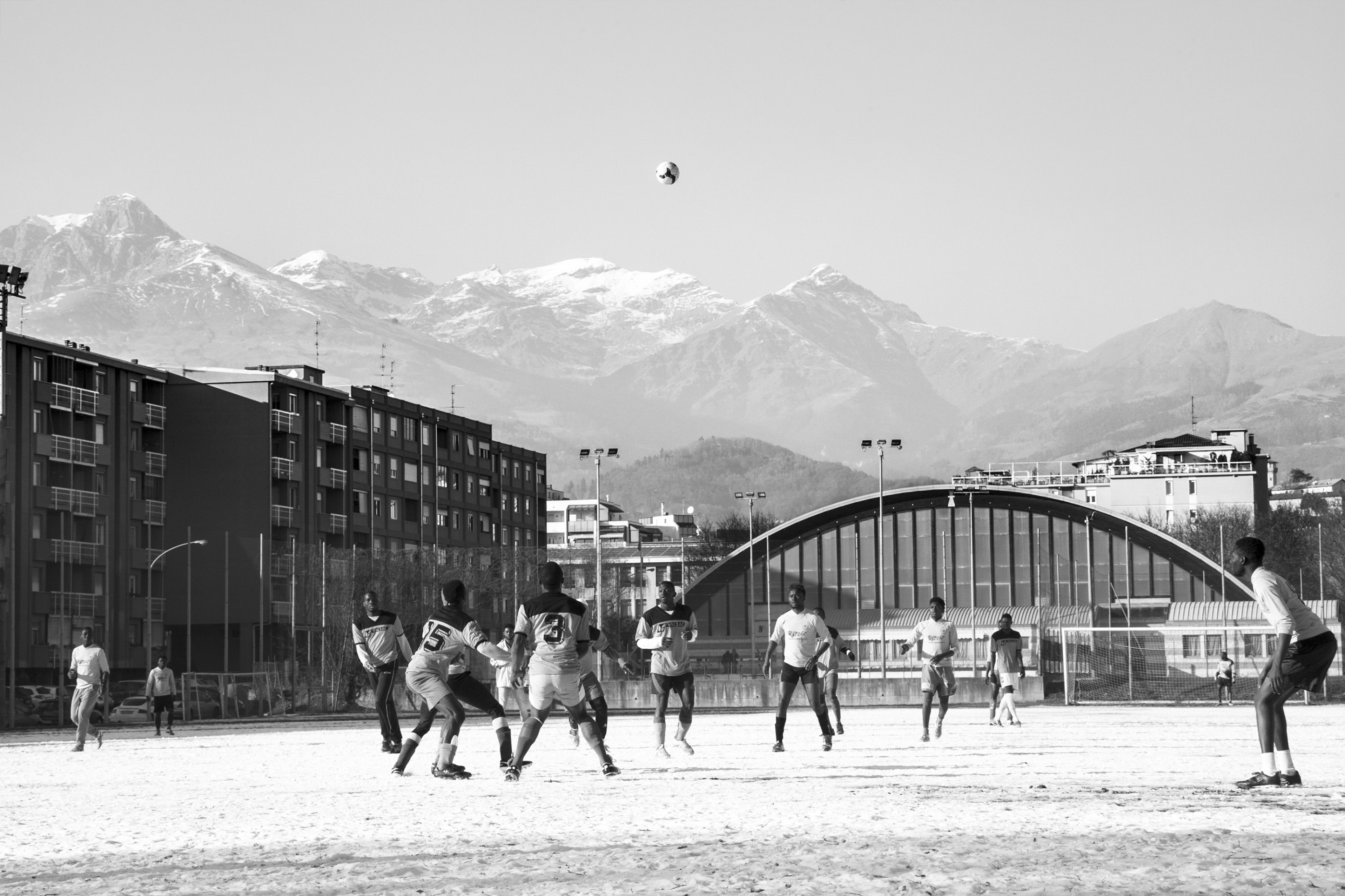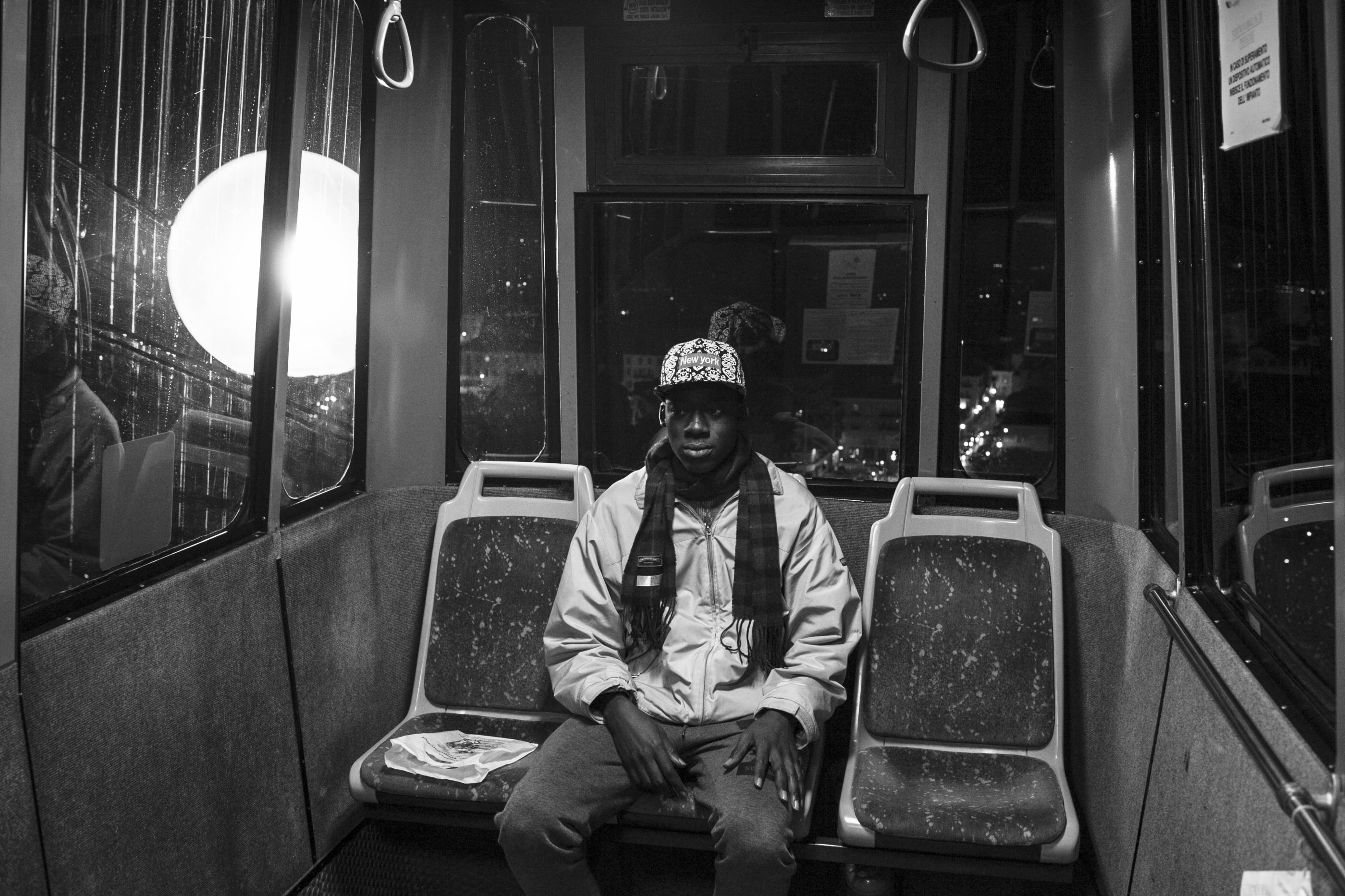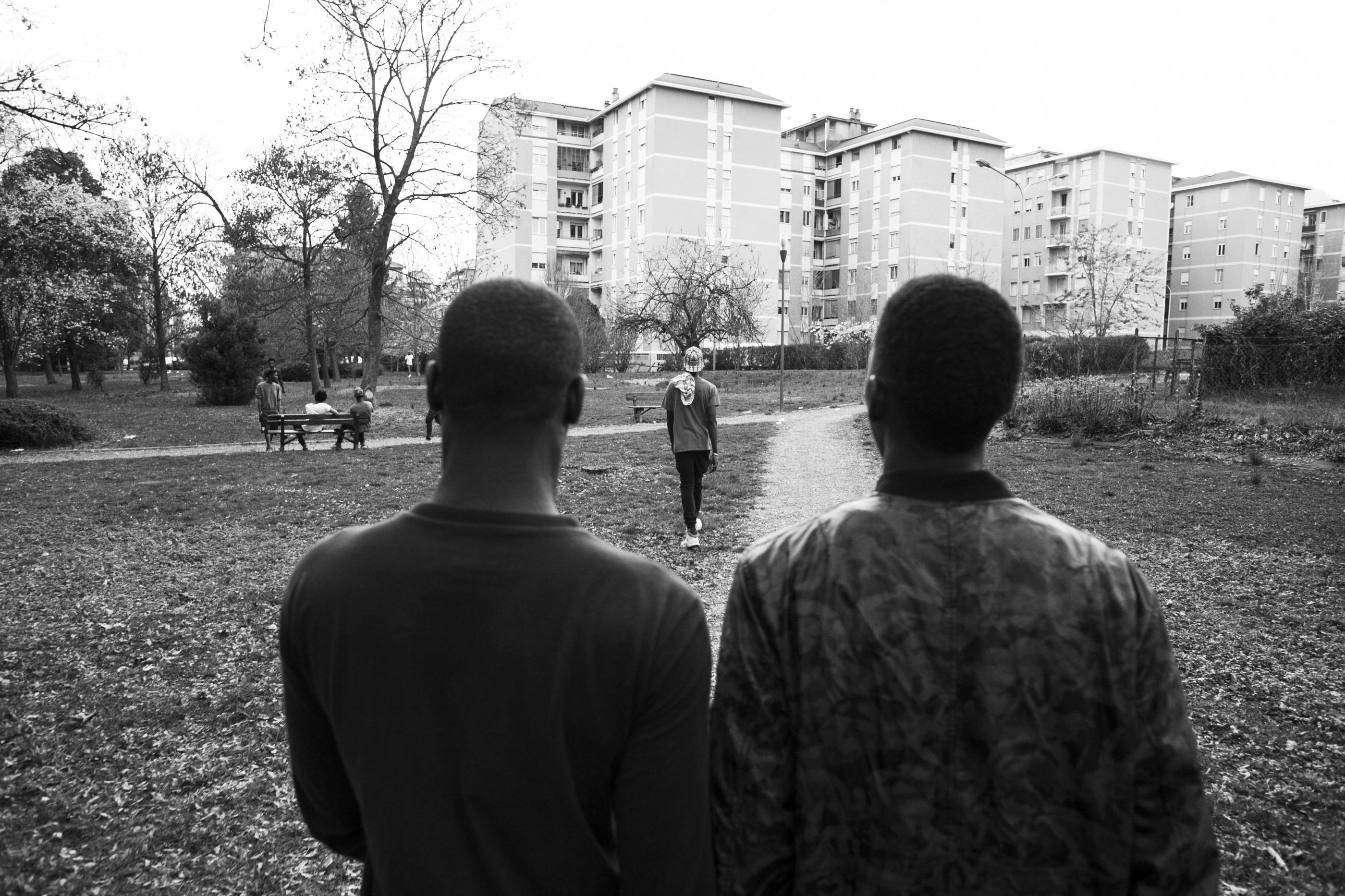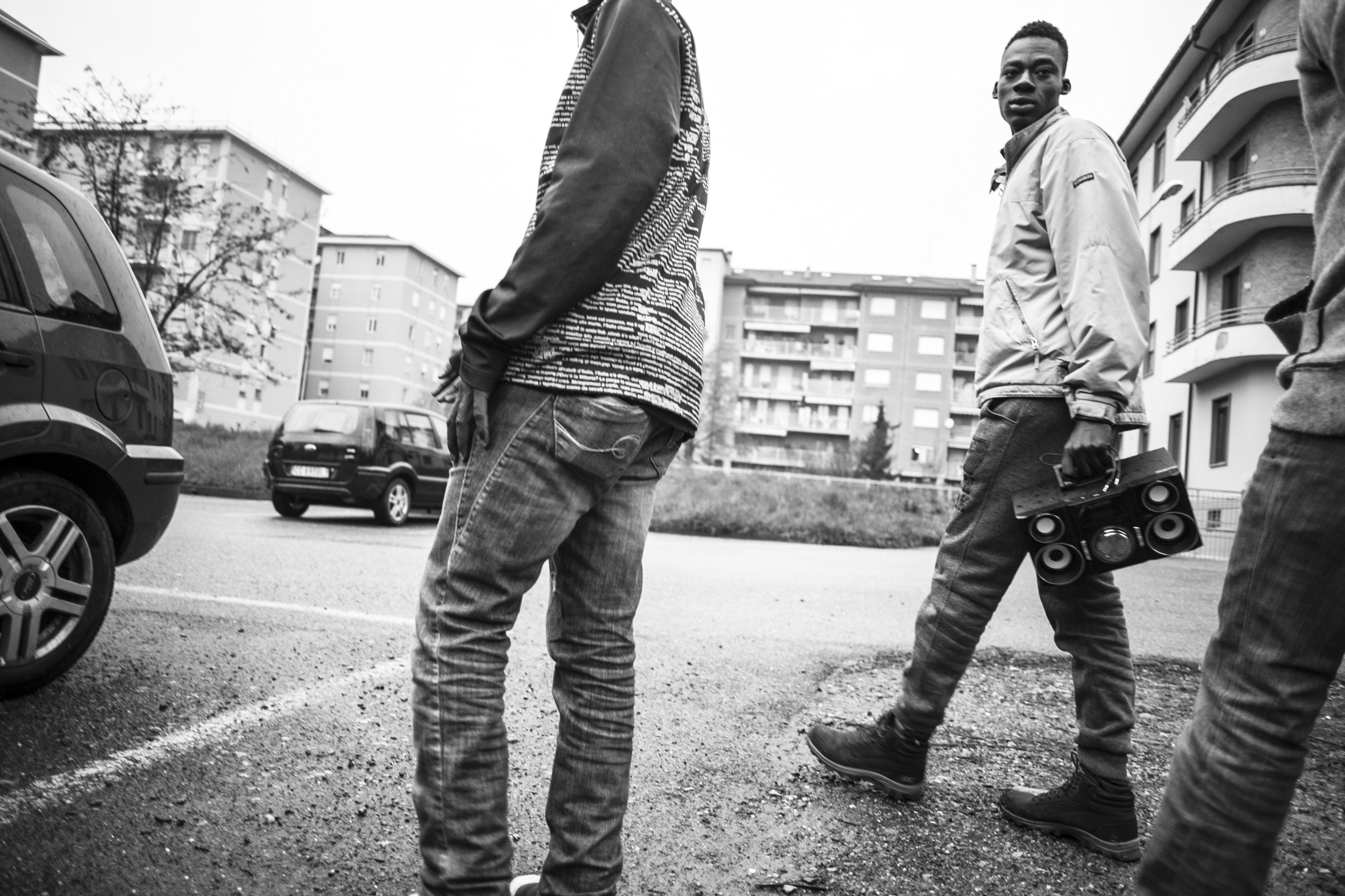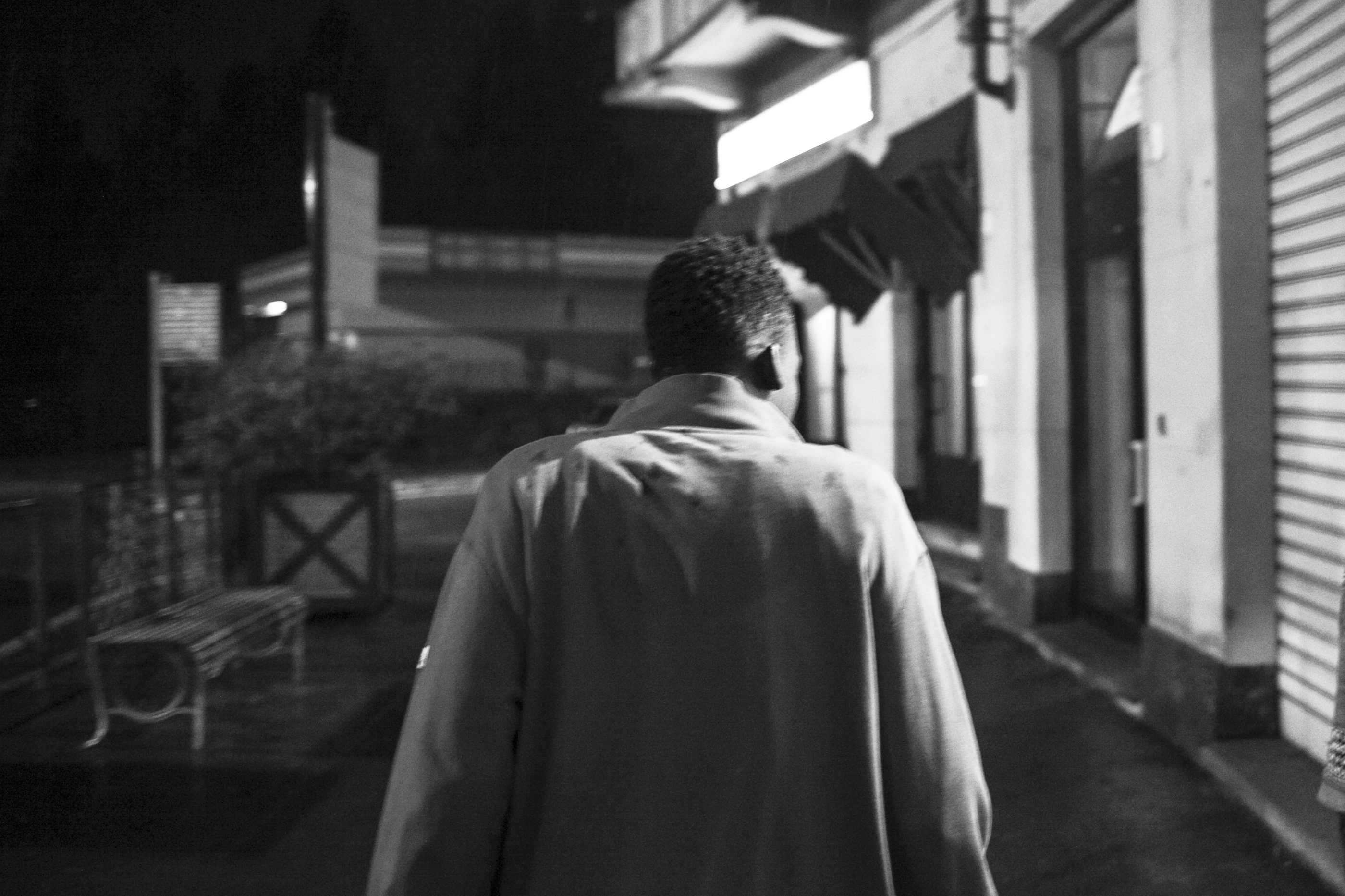BANJUL TO BIELLA
Among them was Malick Jeng, 19-year-old Gambian whose life in Italy I documented from 2016 till 2018. He is one of the 181,436 refugees and migrants who reached Italy by sea in 2016, a year that broke all records in Mediterranean crossings. Malick left his hometown of Banjul, the capital of Gambia, five months before the rescue. He walked away alone, without telling his family, like many young people who have attempted the journey to Europe before him.
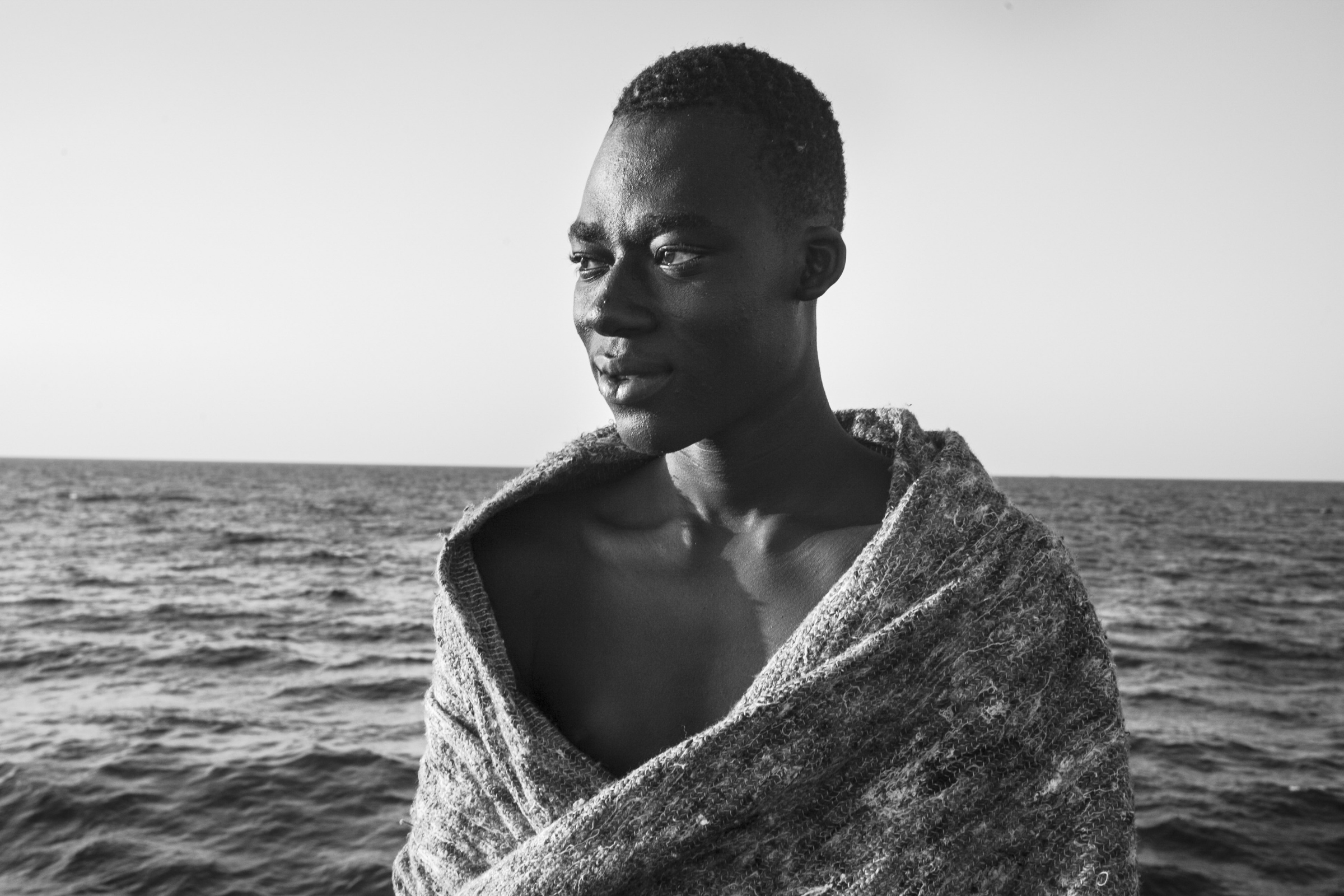
After passing Senegal, he crossed the desert in Mali inside an oil tank, where he nearly suffocated. Once he arrived in Libya, he was imprisoned for a month, during which he had to witness the murder of some of his fellow travelers. As soon as he was released, thanks to a payment sent by his family, he got in touch with a smuggler that transferred him to a "connection center" in Tripoli, Libya´s capital. He waited there for weeks to be sent to a beach in Zabratha, from where he departed to Europe.
Once in Italy, he was first transferred to Sicily and then to Biella, a city in the north of the country, where he lived till 2022, in a place called Hotel Colibri - an old hotel closed for a decade. The hotel was turned into a refugee center in August 2016.
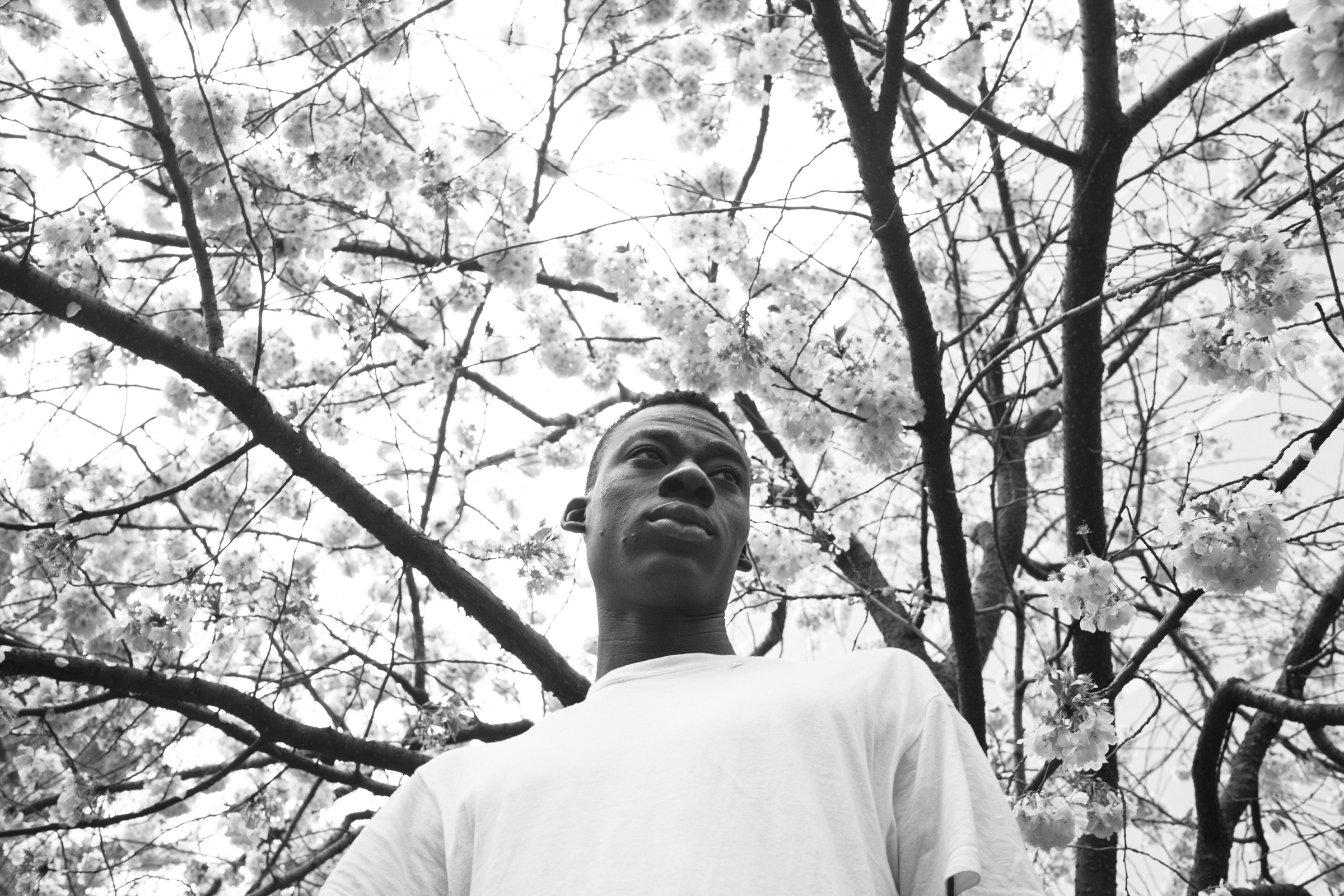
2022. Kolga Tbilisi Photo. Outdoor. Tbilisi, Georgia.
2022. 25th Anniversary of the Luis Valtueña International Photography Award. Cervantes Institute. Dakar, Senegal.
2022. 25th Anniversary of the Luis Valtueña International Photography Award. Outdoor. Madrid, Spain.
2022. 25th Anniversary of the Luis Valtueña International Photography Award. Outdoor. Navia, Spain.
2022. 25th Anniversary of the Luis Valtueña International Photography Award. Outdoor. Avilés, Spain.
2020. Luis Valtueña Awards. Biblioteca Jordi Rubió i Balaguer, Sant Boi de Llobregat, Spain.
2019. Urban Institute for Contemporary Arts. MI, EE.UU.
2019. Luis Valtueña Awards. Archivo Histórico Provincial de Albacete.
2019. Luis Valtueña Awards. Centro Joaquín Roncal. Zaragoza.
2019. Luis Valtueña Awards. Caixa Forum. Madrid.
2018. OBERÜBER KARGER Kommunikationsagentur. Dresden, Alemania.
2017. Paraty em Foco. Paraty, Brasil.
2017. Comune di Vercelli. Vercelli, Italia.
2017. Palazzo Ferrero. Biella, Italia.

